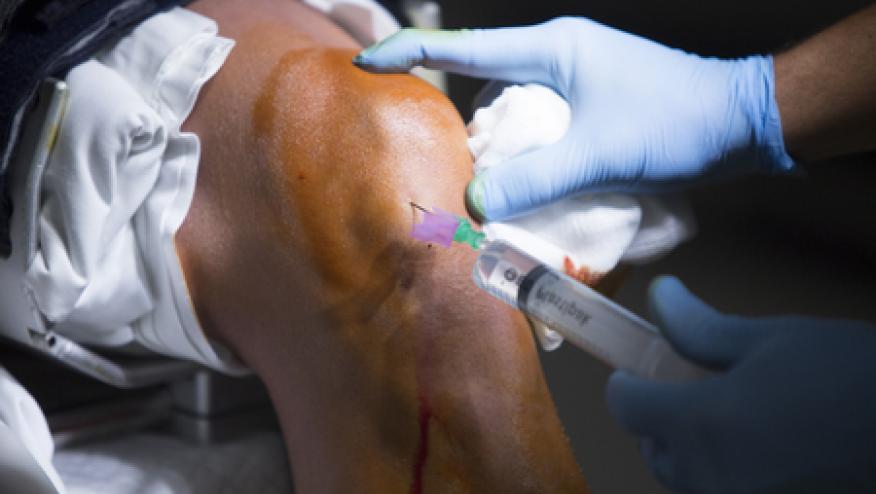Steroid Injections for Knee Osteoarthritis May Promote Cartilage Loss Save

Treatment of knee osteoarthritis (with synovitis) with an injection of a corticosteroid every three months over two years resulted in significantly greater cartilage volume loss and no significant difference in knee pain compared to patients who received a placebo injection, according to a study published by JAMA.
Symptomatic knee osteoarthritis was estimated to affect more than 9 million individuals in the United States in 2005 and is a leading cause of disability and medical costs. Symptomatic management of knee OA is not thought to promote structural progression or significant cartilage loss.
Timothy E. McAlindon, D.M., M.P.H., of Tufts Medical Center, Boston, and colleagues randomly assigned 140 patients with symptomatic knee osteoarthritis with features of synovitis to injections in the joint with the corticosteroid triamcinolone (n = 70) or saline (n = 70) every 12 weeks for two years. The researchers found that injections with triamcinolone resulted in significantly greater cartilage volume loss than did saline (average change in cartilage thickness of -0.21 mm vs -0.10 mm) and no significant difference on measures of pain. The saline group had three treatment-related adverse events compared with five in the triamcinolone group.
Several limitations of the study are noted in the article, including that any transient benefit on pain ending within the 3-month period between each injection could have been missed by methods used in the study.
“These findings do not support this treatment for patients with symptomatic knee osteoarthritis,” the authors write.







If you are a health practitioner, you may Login/Register to comment.
Due to the nature of these comment forums, only health practitioners are allowed to comment at this time.